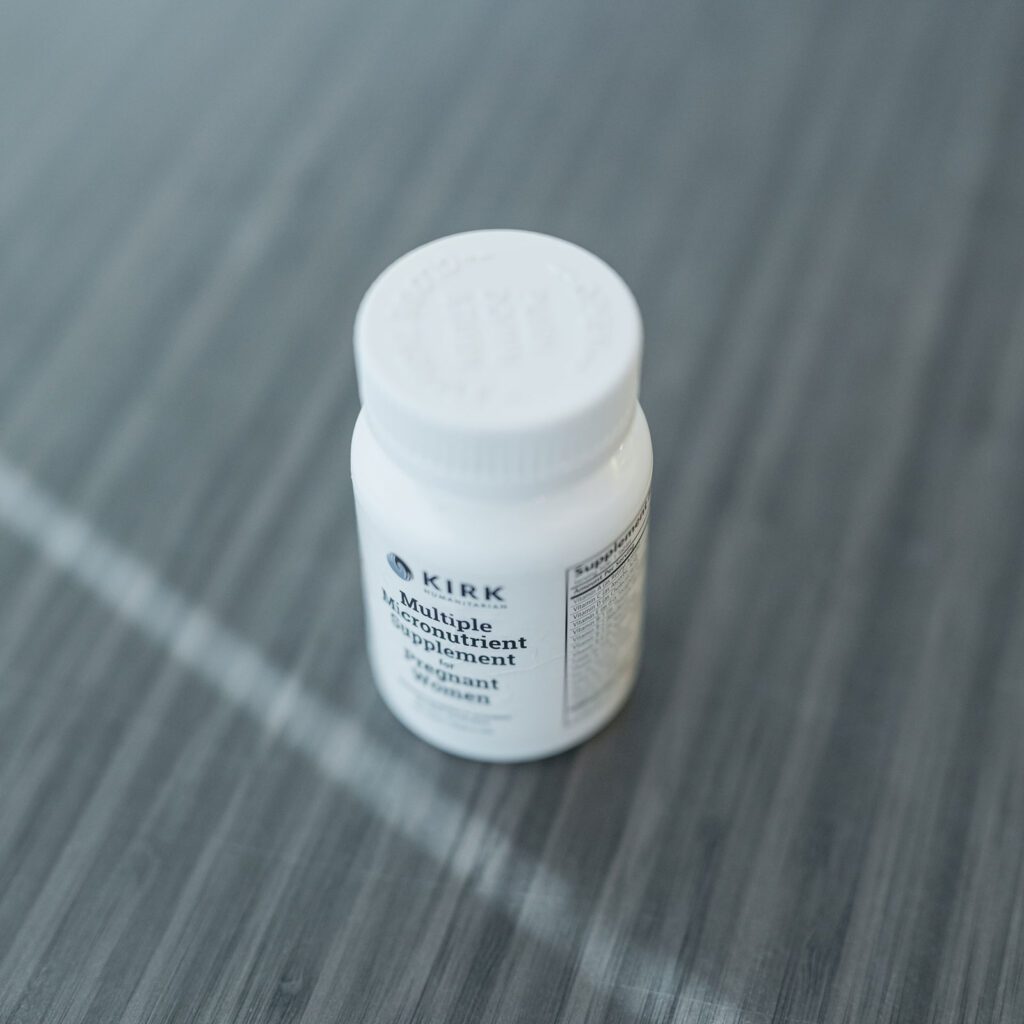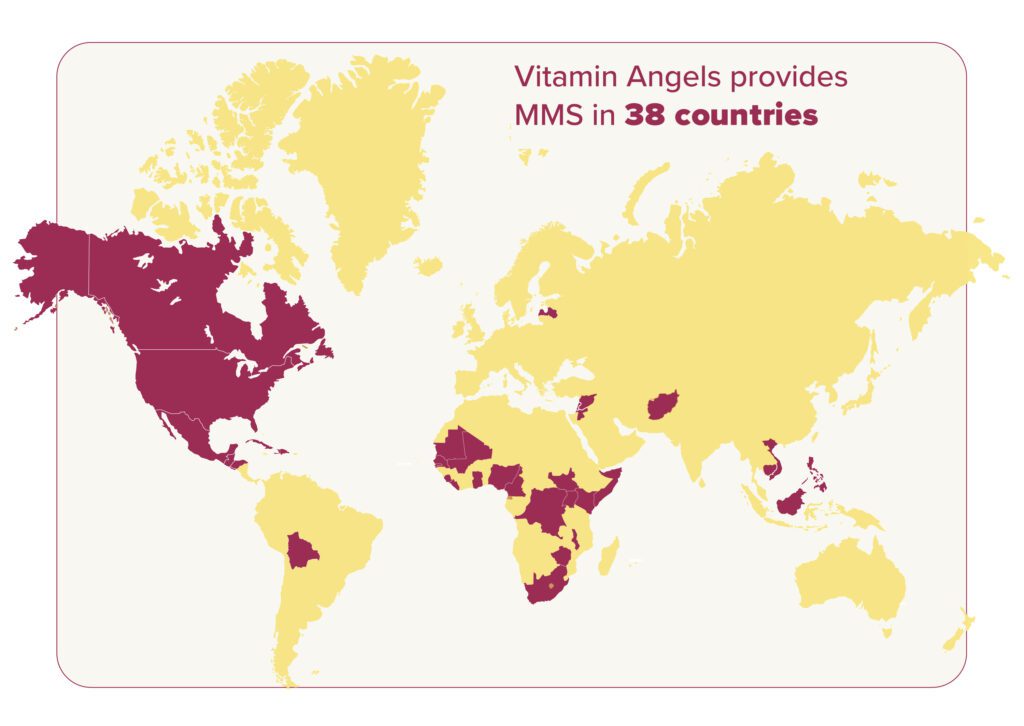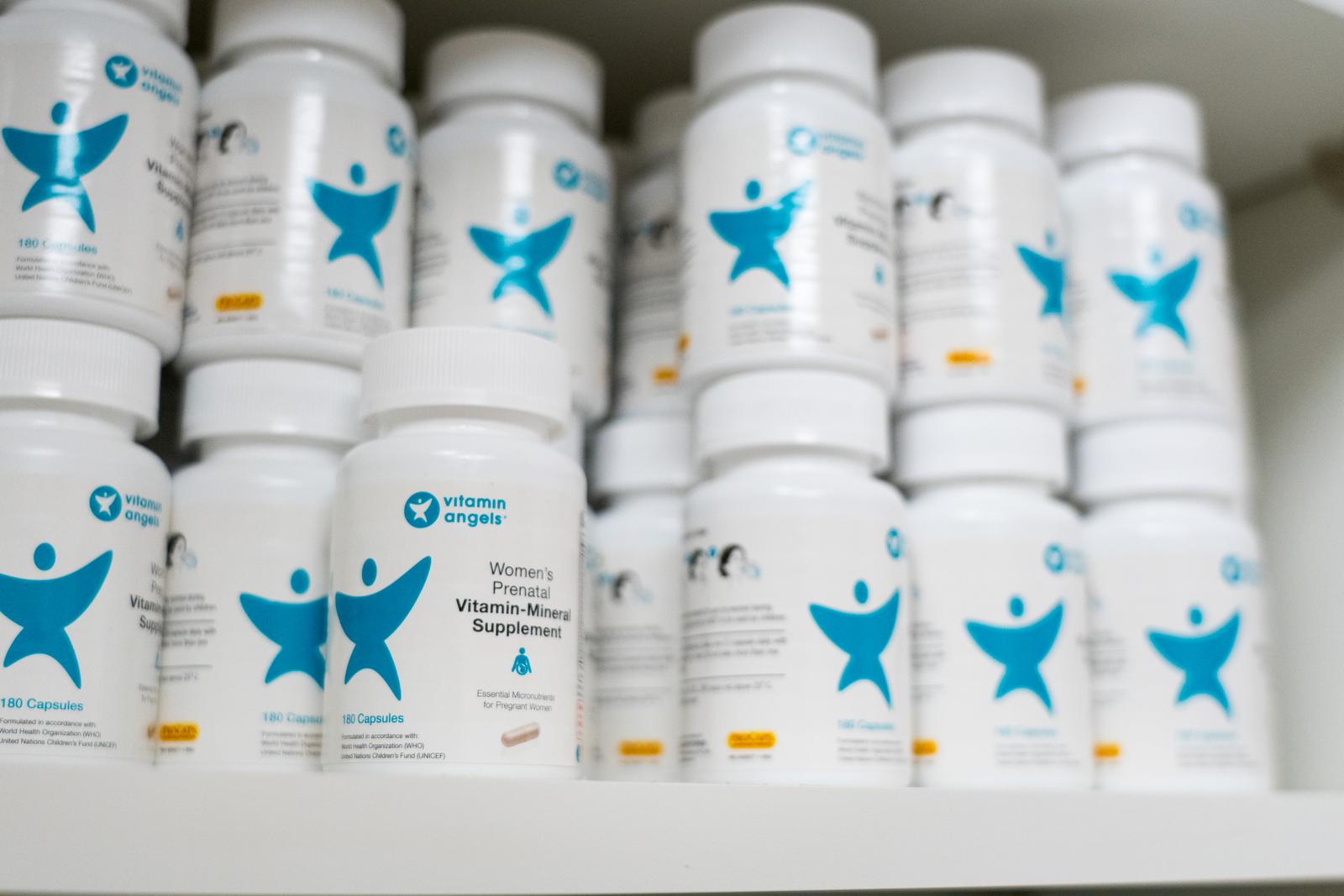What is UNIMMAP MMS?
UNIMMAP MMS (United Nations International Multiple Micronutrient Antenatal Preparation Multiple Micronutrient Supplements) is a specific formulation of the supplement commonly known as prenatal vitamins and minerals. UNIMMAP MMS has been proven to have a significant and positive impact on maternal and child health.
Internationally Recognized Formula
UNIMMAP MMS is an internationally accepted regulatory standard that has been shown to be effective at improving pregnancy outcomes in low and middle-income countries (LMICs).
UNIMMAP MMS contains 15 vitamins and minerals, including iron and folic acid, in recommended doses. The formulation was developed in 1999 through a collaboration between the World Health Organization (WHO), the United Nations University, and UNICEF, and then tested rigorously through randomized controlled trials for safety and effectiveness.

In 2021, UNIMMAP MMS was included in the WHO Essential Medicine List, recognizing it as among the most proven, cost-effective, and safe ways to meet the specific micronutrient requirements of pregnancy.1
Why is UNIMMAP MMS important?
During pregnancy, women have increased nutritional demands to support the growth and development of their babies.
The daily required intake of several key vitamins and minerals increase during pregnancy and often cannot be met through diet alone.2
This is especially problematic as many women in low- and middle-income countries (LMICs) are already deficient in several micronutrients even before pregnancy.3
Globally, two in three women of reproductive age have at least one micronutrient deficiency.3
Pregnant women in LMICs are at an increased risk of deficiency in a variety of vitamins and minerals—including vitamins A, C, D, E, thiamine, riboflavin, niacin, B6, folic acid, B12, and the minerals iron, zinc, iodine, copper, and selenium.4 UNIMMAP MMS is specifically formulated to address nutrient needs during pregnancy and accommodates the increased needs of pregnant women, even in low-resource settings.
Undernourished pregnant women are more likely to experience adverse pregnancy and birth outcomes. For example, anemia affects 36% of pregnant women globally and is believed to increase the risk of death due to post-partum hemorrhage, the leading cause of maternal death.5 Iron deficiency anemia is also associated with adverse birth outcomes such as preterm delivery, low-birth-weight infants, and decreased iron stores for the baby, which may lead to impaired development.5,6
Nutrient deficiencies during pregnancy can result in impaired health and well-being for both the mother and child.5 Children of undernourished pregnant women are more likely to experience poor physical and cognitive development that can keep them from reaching their full potential as adults.7
Undernutrition during pregnancy can create an intergenerational cycle of health and economic disparity that is felt across communities and generations.
What are the benefits of UNIMMAP MMS?
Strong evidence shows that UNIMMAP MMS significantly reduces the risk of adverse birth outcomes—especially in undernourished pregnant women—including low birth weight, resulting from preterm and small-for-gestational-age births.8 For children born to underweight and anemic mothers, the benefits of UNIMMAP MMS are even more pronounced.8
UNIMMAP MMS also has lasting impacts since proper nutrition early on means children are better prepared for physical and cognitive development throughout childhood.8 For example, switching from iron and folic acid supplementation to MMS, and scaling interventions up to 90% coverage in 132 LMICs, was estimated to result in 5.02 million additional school years and $18.1 billion in lifetime income.9
Vitamin Angels and UNIMMAP MMS
Vitamin Angels recognizes that early life nutrition can support optimal health and development for both individuals and societies
Vitamin Angels works with key partners to provide UNIMMAP MMS to pregnant women and their babies. Vitamin Angels has reached over 22 million pregnant women and their babies with MMS since launching in 1994.
The MMS formulation provided by Vitamin Angels is consistent with the UNIMMAP MMS formula and is manufactured to international quality standards.*
Vitamin Angels provides MMS in 38 countries and works globally with government and non-governmental partners to remove barriers to access and facilitate uptake and adherence across the globe.

How Vitamin Angels Works
Vitamin Angels Increases Access to UNIMMAP MMS
To reach the most underserved and nutritionally vulnerable pregnant women in context-specific ways, Vitamin Angels partners with qualified local organizations—including governments, NGOs, and academic institutions—to provide direct in-kind grants of UNIMMAP MMS, along with the necessary tools to support effective and sustainable implementation.
Vitamin Angels Increases Uptake and Adherence
To help women understand how and why they should take UNIMMAP MMS (early and daily), we offer evidence-based social behavior change strategies, including education, healthcare provider training, and counseling programs for mothers.
Vitamin Angels Creates a Welcoming Environment for Long-Lasting Change
To increase access to MMS for all pregnant women, we work to strengthen global supply chains and conduct advocacy work to build consensus among key stakeholders and push toward a more enabling environment for UNIMMAP MMS, maternal care, and health equity, worldwide and for generations to come.
By Jimmy Grattan, MS
*Vitamin Angels does not manufacture MMS, nor do we have any financial interest or ties to pharmaceutical manufacturers or the success of any supplement or intervention we offer. We uphold the highest standards when partnering with MMS manufacturers and select only those who produce MMS consistent with the UNIMMAP formulation and internationally recognized quality and cGMP standards.
- 1 World Health Organization. Model List of Essential Medicines—22nd List, 2021. Geneva: World Health Organization; 2021.
- 2 Gernand AD, Schulze KJ, Stewart CP, West KP Jr, Christian P. Micronutrient deficiencies in pregnancy worldwide: Health effects and prevention. Nat Rev Endocrinol. 2016;12(5):274-289.
3 Stevens GA, Beal T, Mbuya MNN, Luo H, Neufeld LM; Global Micronutrient Deficiencies Research Group. Micronutrient deficiencies among preschool-aged children and women of reproductive age worldwide: A pooled analysis of individual-level data from population-representative surveys. Lancet Glob Health. 2022 https://doi.org/10.1016/S2214-109X(22)00367-9
4 Bourassa, MW, Osendarp, SJ, et al. 2019. Review of the evidence regarding the use of antenatal multiple micronutrient supplementation in low- and middle- income countries. Ann. N.Y. Acad. Sci., 1444: 6-21. - 5 The World Health Organization, 2021, Global anaemia estimates
- 6 Kominiarek et al. 2017. Nutrition recommendations in pregnancy and lactation. Med Clin North Am.
- 7 Prado E, et al. 2017. Maternal multiple micronutrient supplementation and other biomedical and socioenvironmental influences on children’s cognition at age 9–12 years in Indonesia: Follow-up of the SUMMIT randomised trial. Lancet Glob. Heal. Feb 2017. E217-e228.
- 8 Smith ER, Shankar AH, Wu LS, Aboud S, Adu-Afarwuah S, Ali H, Agustina R, Arifeen S, Ashorn P, Bhutta ZA, Christian P. Modifiers of the effect of maternal multiple micronutrient supplementation on stillbirth, birth outcomes, and infant mortality: A meta-analysis of individual patient data from 17 randomised trials in low-income and middle-income countries. The Lancet Global Health. 2017 Nov 1;5(11):e1090-100.
- 9 Perumal N, et al. 2021. Impact of scaling up prenatal nutrition interventions on human capital outcomes in low- and middle-income countries: A modeling analysis. Am J Clin Nutr. 2021 Nov 8;114(5):1708-1718.

